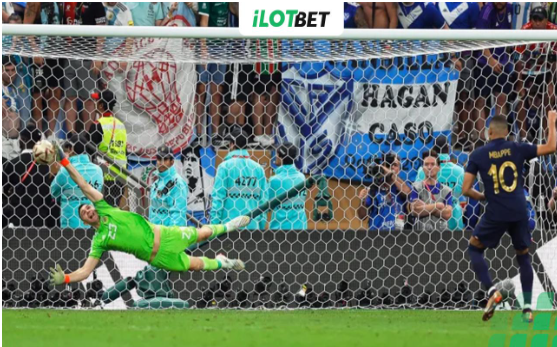There’s nothing quite like the tension of a penalty kick. One player, one goalkeeper, and millions of eyes locked in suspense. In that one fleeting moment, all the training, tactics, and talking points of a match melt away. It’s just about nerve, precision, and an invisible battle raging inside the player’s mind.
When a player steps up to take a penalty, it may look like a simple task. But inside, a storm is brewing. Sports psychology has long studied what happens under pressure, and it’s clear that the brain becomes the biggest opponent. Normally, kicking a ball into a net from close range should be automatic for a professional. Muscle memory should take over. However, under the crushing expectation of fans, teammates, and even personal pride, the brain’s conscious control center — the prefrontal cortex — hijacks the natural process. Suddenly, players start overthinking movements that should feel natural, a phenomenon known as “choking under pressure.”
Research led by sports psychologist Geir Jordet has shown that players who take longer to begin their run-up during high-pressure shootouts are more likely to miss. Hesitation and rumination creep in, and what should be a clean, instinctive action becomes a mental obstacle course. It’s not a lack of talent — it’s a case of the mind getting in the way of the body.
This is partly why we see so many different and sometimes bizarre penalty run-ups in modern football. That little stutter before the strike, the awkward pause mid-run, or the exaggerated slow approach, they are not just for show. They are tactical moves rooted in psychological warfare. Players like Bruno Fernandes with his hop, Jorginho with his skip, and Neymar with his lazy-looking stroll to the ball are masters of controlled deception. The aim is to throw off the goalkeeper’s timing and rhythm, forcing them to make the first move or second-guess their dive.
But of course, the margin for error is razor-thin. Get it wrong, and you end up with moments like Simone Zaza’s infamous UEFA Euro 2016 miss, replayed on internet highlight reels for all eternity. In the high-stakes world of penalties, style must be backed up with substance, or it can spectacularly backfire.
Meanwhile, goalkeepers aren’t just standing there waiting to react. They are actively plotting ways to get inside the kicker’s head. A smart goalkeeper knows that saving a penalty isn’t just about reflexes; it’s about disruption. From waving their arms wildly, to dancing along the line, to whispering sly comments, keepers use every trick in the book to distract and unnerve. Some delay the penalty by adjusting their gloves or pointing at the ball, buying themselves a few extra seconds to mess with the taker’s focus.
Emiliano Martinez famously turned this into an art form during Argentina’s FIFA World Cup triump in 2022, using taunts, stares, and even little dances to unsettle opponents before they struck the ball. In sports psychology, this is known as “attentional disruption” — forcing the penalty taker’s mind to focus on irrelevant stimuli instead of the technical execution of the shot.
At the heart of it all, the defining factor is confidence. Not just ordinary confidence, but a deep, almost irrational self-belief. Players who succeed from the spot are those who trust their instincts, commit to their chosen action, and block out the noise, both external and internal. Those who falter often get caught in a spiral of doubt, second-guessing themselves mid-run, changing direction, or trying to read the keeper instead of focusing on their own plan.
Sports psychologist Dr. Patrick Cohn notes that players with a “nothing to lose” mentality often perform better under pressure than those burdened by fear of failure. When fear takes over, muscles tighten, decision-making slows, and execution suffers. This is why managers sometimes prefer young, fearless players for shootouts, betting on their lack of psychological scars over experience.
In the end, a penalty kick is never just a kick. It’s theatre. It’s a chess match played out in real time, with courage, fear, cunning, and instinct all colliding at once. It’s why penalty shootouts remain one of the most dramatic spectacles in all of sports.
Think you can predict who will hold their nerve and who will crumble when the pressure is on? Put your football instincts to the ultimate test with iLOTBET.
#FeaturedPost


